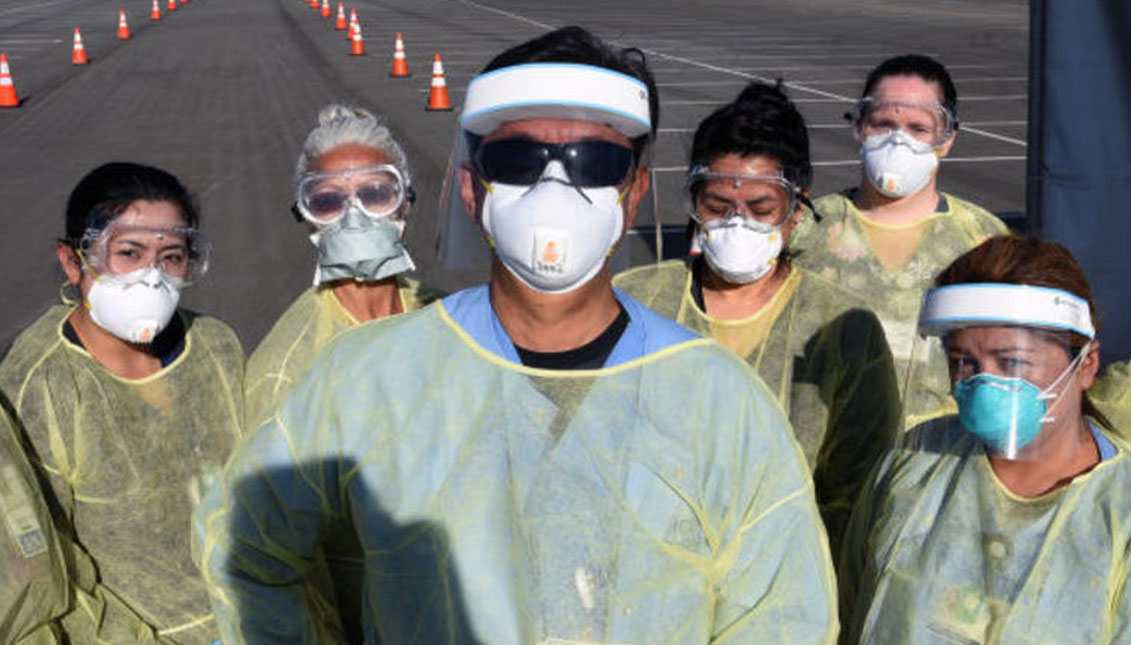
Dreamers and Coronavirus: the risk of terminating DACA during the pandemic
More than 60,000 undocumented young people are part of the health worker community that is putting their lives at risk during the Coronavirus pandemic in the…
While millions of people are learning to live with the new reality of confinement during the Coronavirus pandemic, there are some who must cope with two anxieties at the same time –800,000, to be exact.
These are the young undocumented immigrants who arrived in the country as children, better known as Dreamers, and whose fate now depends on the ruling of the Supreme Court, which will have to determine whether or not the Trump Administration had the right to suspend the program that protects them from deportation.
Called the Deferred Action for Childhood Arrivals (DACA) program, it was introduced during the Obama Administration and allowed hundreds of thousands of young people access to higher education and the labor market.
These people are today, more than ever, a key element in the country's economic engine, even more so during the COVID-19 pandemic, where more than 62,000 Dreamers are members of the health worker community.
“The DACA program allowed them to…come out of the shadows without fear of deportation, to work, and in many places, to go to college, putting them on a path to future success, benefitting local and state economies and entire communities of people,” Hannah Siegel, managing director of the New American Economy (NAE), a bipartisan nonprofit immigration research and advocacy group, told Quartz.
“Yet worries about deportation persist for many,” Siegel adds, “and the timing couldn’t be worse,” Siegel added.
You don't have to be an expert in political science to know that the Trump Administration made immigrants –especially the undocumented– its scapegoat and favorite campaign target.
Whenever the president feels that his approval rating drops in the polls, there is always some mechanism at the border or in Republican states against immigrants, always trying to strengthen the base of his loyal voters.
However, if this pandemic has taught us anything, it's that those workers frequently exposed by the administration as "illegals," "undocumented," "invaders" are precisely the ones who keep the economy going.
From farmers, cashiers, and transporters, to doctors, nurses and specialists on the front line of the battle against the Coronavirus, immigrants have been one of the communities most affected by this crisis.
In a letter to the Supreme Court, the Jerome N. Frank Legal Services Organization explained how the decision to end DACA should be "reversed.
RELATED CONTENT
"The public health crisis now confronting our nation illuminates the depth of those interests as borne by employers, civil society, state and local governments, and communities across the country, and especially by healthcare providers," the group wrote.
"Furthermore, it throws into sharp relief DACA recipients’ important contributions to the country and the significant adverse consequences of eliminating their ability to live and work without fear of imminent deportation.”
After hearing arguments for and against the end of the program, the Supreme Court should issue it’s ruling at any time, the Washington Post said.
With a new conservative majority on the court, many anticipate that the body will rule in favor of the government, putting more than 800,000 people across the country at risk of deportation.
“We think it would be catastrophic at this time” to terminate DACA, said Karen Tumlin, a lawyer for plaintiffs suing over the Trump administration’s decision to end the program. “We don’t have enough health professionals right now.”
In the meantime, and as the Post continues, the Administration has shown some willingness to reach an agreement with Democrats to ensure a solution to Dreamers, as long as other immigration enforcement measures are granted.
But at this point, undocumented immigrants are on the front lines of the pandemic, without access to congressionally approved benefits and with the constant anguish of not knowing how long they will be welcome in a country they’re willing to give their lives for.











LEAVE A COMMENT: